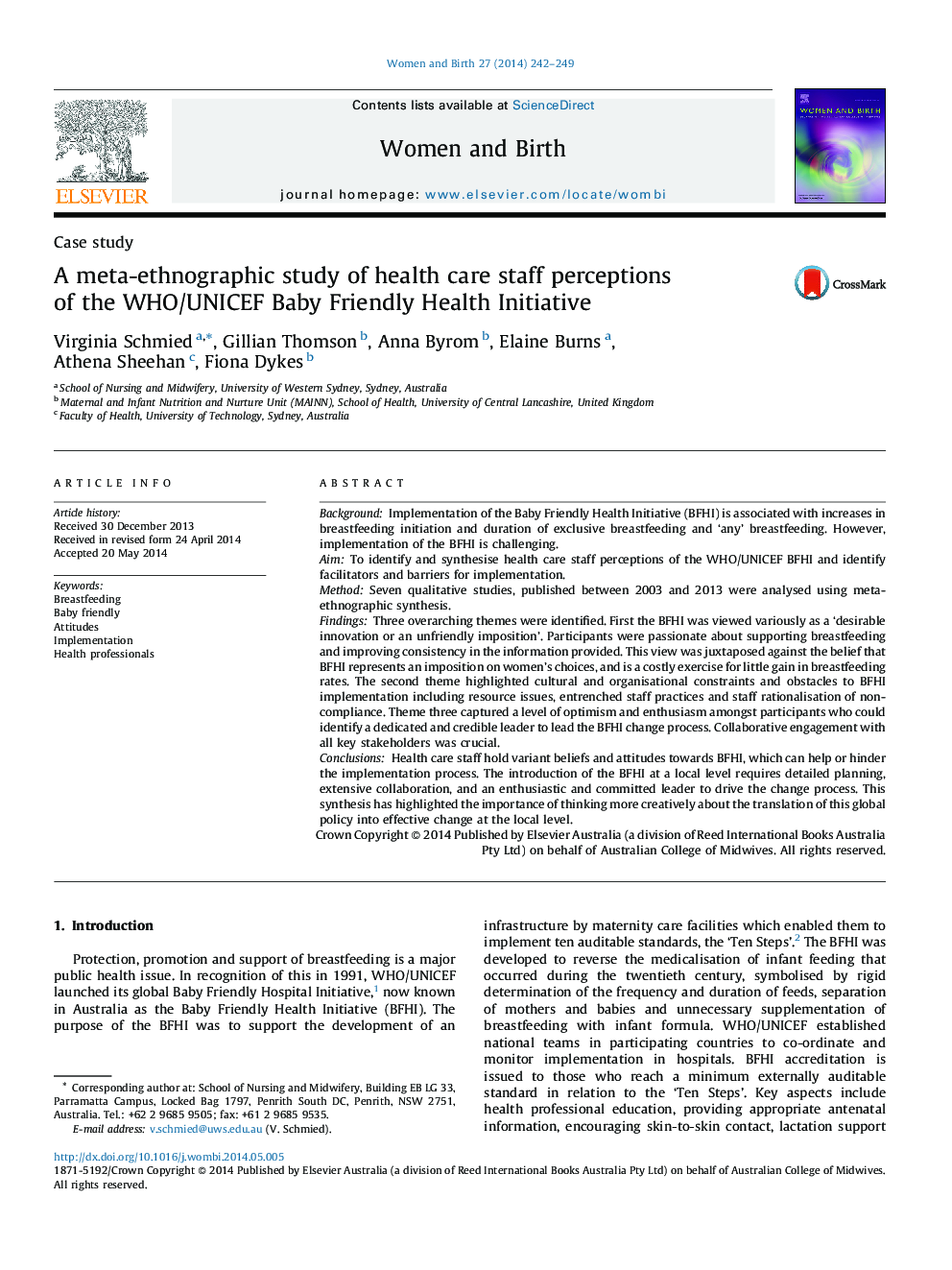| Article ID | Journal | Published Year | Pages | File Type |
|---|---|---|---|---|
| 2635994 | Women and Birth | 2014 | 8 Pages |
BackgroundImplementation of the Baby Friendly Health Initiative (BFHI) is associated with increases in breastfeeding initiation and duration of exclusive breastfeeding and ‘any’ breastfeeding. However, implementation of the BFHI is challenging.AimTo identify and synthesise health care staff perceptions of the WHO/UNICEF BFHI and identify facilitators and barriers for implementation.MethodSeven qualitative studies, published between 2003 and 2013 were analysed using meta-ethnographic synthesis.FindingsThree overarching themes were identified. First the BFHI was viewed variously as a ‘desirable innovation or an unfriendly imposition’. Participants were passionate about supporting breastfeeding and improving consistency in the information provided. This view was juxtaposed against the belief that BFHI represents an imposition on women's choices, and is a costly exercise for little gain in breastfeeding rates. The second theme highlighted cultural and organisational constraints and obstacles to BFHI implementation including resource issues, entrenched staff practices and staff rationalisation of non-compliance. Theme three captured a level of optimism and enthusiasm amongst participants who could identify a dedicated and credible leader to lead the BFHI change process. Collaborative engagement with all key stakeholders was crucial.ConclusionsHealth care staff hold variant beliefs and attitudes towards BFHI, which can help or hinder the implementation process. The introduction of the BFHI at a local level requires detailed planning, extensive collaboration, and an enthusiastic and committed leader to drive the change process. This synthesis has highlighted the importance of thinking more creatively about the translation of this global policy into effective change at the local level.
